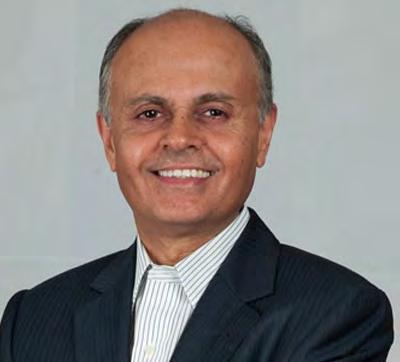
2 minute read
You can’t be resilient in a vacuum
“The steadily worsening impact of the twin-deficits plaguing Pakistan’s external and fiscal accounts has now been overtaken by a third deficit, which is the trust deficit. Trust deficit in our political leadership, establishment, judiciary, media and the elite. The latest developments are a continuation and buildup of this deficit. The IMF does not trust the current, or the previous government. Our traditionally friendly countries are shy to come forth with assistance. The politicians don’t trust each other. The judiciary is divided and the government is at loggerheads with its decisions,” he explains.
Ehsan Malik
Advertisement

Chief Executive Officer of the Pakistan Business Council
The PBC is a large umbrella organisation that advocates for macro policy changes that will be pro business in Pakistan. Since it has a lot of stakeholders, it does not exactly participate in strategic engagement the way the other organisations such as APTMA do. It is, in essence, a large body that represents general business interests in Pakistan. Speaking to its Chief Executive Officer, Ehsan Malik, it appeared the sentiments of the business industry are aligned with the mood of the nation.
“There was never much love for bureaucrats or their control through a colonial regulatory mindset. The not-so-hidden hand of the establishment is much more visible by the day. Traders and shopkeepers are not convinced to pay taxes. State-owned enterprises bleed the economy at a growing rate, as does energy circular debt. Business is suffering from a policy rate which is intended, but has miserably failed to arrest inflation. Together with a severe import crunch, banks and E&P sector aside, the KSE-100 profits were down 36% in 1Q 2023 vs SPLY. Adjusted for inflation, they were half that of 1 Q 2022. Remittances are falling, smuggling is growing, as is the informalisation of the economy. Inflation is running away and people are losing their jobs. The country’s economy is fractured in so many ways. It is not surprising that lenders, including the IMF, are reluctant to proceed with their support programmes.”
He points out how the latest developments on arrests, riots, uncertainty on the timing of elections, as indeed the outcome of elections when/if they take place, are hardly likely to get the IMF to step forward and sign the SLA. “The more relevant (and disturbing) question is whether the economy is really the topmost priority for the government or the opposition. Neither has any clear plans for reforms and they don’t talk to each other about the economy,” he laments.
“Pakistan’s private sector is known for its resilience. However, even its ability to bounce back quickly is not going to be easy. You can’t be resilient in a vacuum. There has to be space on both the demand and supply sides. Demand is severely contracted by inflation and supply by shortage of forex reserves. We are seeing a brain drain as professionals seek opportunities abroad. There is also bound to be flight of capital as those who can will move their investments out of the country. Remaining in Pakistan carries the additional risk of higher taxes as broadening the tax base is beyond FBR’s capacity, nor is there political will for it.”







